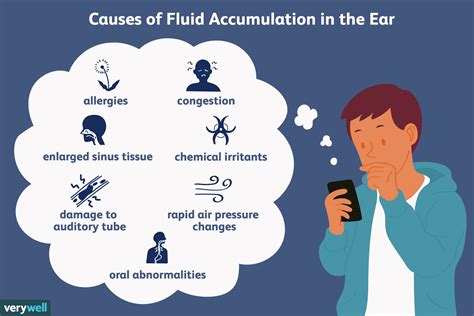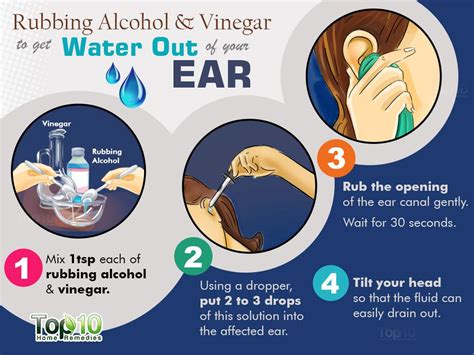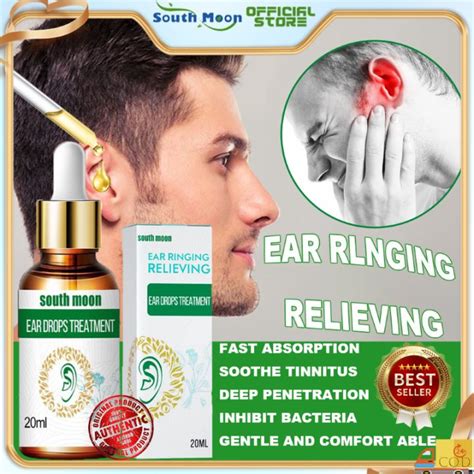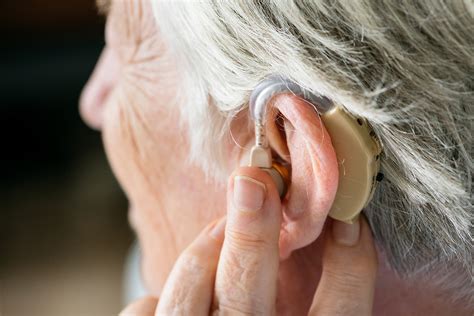Intro
Discover liquid in ear symptoms and remedies. Learn about ear fluid, earwax, and eustachian tube issues, and find relief with natural treatments and home remedies to alleviate discomfort and hearing problems.
The sensation of liquid in the ear can be quite uncomfortable and even alarming, leading many to wonder about the possible causes and remedies for this issue. It's essential to understand that the ear is a delicate and complex organ, and any unusual sensations or symptoms should be taken seriously. The feeling of liquid in the ear can be caused by various factors, including earwax buildup, ear infections, or even a ruptured eardrum. In this article, we will delve into the symptoms, causes, and remedies for liquid in the ear, providing you with a comprehensive guide to help you navigate this issue.
The human ear is a remarkable organ, responsible for our sense of hearing and balance. It consists of the outer ear, middle ear, and inner ear, each playing a vital role in our ability to perceive sound and maintain equilibrium. However, when liquid accumulates in the ear, it can disrupt this delicate balance, leading to a range of symptoms, including hearing loss, vertigo, and discomfort. It's crucial to identify the underlying cause of the liquid in the ear to determine the best course of treatment.
Liquid in the ear can be a symptom of an underlying condition, such as an ear infection, a cold, or allergies. In some cases, the liquid may be a result of a more serious issue, such as a perforated eardrum or a middle ear problem. It's essential to consult a healthcare professional if you experience any unusual symptoms or discomfort in your ear. They will be able to diagnose the underlying cause and recommend the best treatment options.
Liquid In Ear Symptoms

Causes Of Liquid In Ear
The causes of liquid in the ear can be diverse, ranging from earwax buildup to more serious conditions like a ruptured eardrum. Some common causes include ear infections, such as otitis media or otitis externa, a cold or allergies, which can cause fluid buildup in the ear. A perforated eardrum or a middle ear problem can also lead to liquid accumulation in the ear. In some cases, the liquid may be a result of a more serious condition, such as a tumor or a cyst in the ear.Liquid In Ear Remedies

Home Remedies For Liquid In Ear
There are also several home remedies that can help to alleviate the symptoms of liquid in the ear. Some common home remedies include applying a warm compress to the affected ear, which can help to relieve discomfort and reduce fluid buildup. You can also try using a humidifier to add moisture to the air, which can help to thin out the fluid in the ear. In some cases, you may find it helpful to try the Valsalva maneuver, which involves pinching your nose shut and blowing gently through your nose to help equalize the air pressure in your ears.Prevention Of Liquid In Ear

Risks And Complications Of Liquid In Ear
If left untreated, liquid in the ear can lead to several risks and complications, including hearing loss, vertigo, and balance problems. In some cases, the liquid can become infected, leading to a more serious condition like mastoiditis or meningitis. It's essential to seek medical attention if you experience any unusual symptoms or discomfort in your ear, as prompt treatment can help to prevent these complications.Treatment Options For Liquid In Ear

When To Seek Medical Attention
It's essential to seek medical attention if you experience any unusual symptoms or discomfort in your ear. Some common signs that you should seek medical attention include severe ear pain, discharge or fluid leaking from the ear, vertigo or dizziness, and hearing loss or muffled hearing. You should also seek medical attention if you have a fever or if you experience any difficulty speaking or swallowing. Prompt treatment can help to prevent complications and ensure that the condition is properly treated.Liquid In Ear And Hearing Loss

Living With Liquid In Ear
Living with liquid in the ear can be challenging, but there are several things you can do to manage the condition. Some common tips include avoiding loud noises, practicing good ear hygiene, and avoiding sticking objects into your ears. You should also attend any recommended follow-up appointments with your healthcare professional to ensure that the condition is properly treated. By following these tips and seeking medical attention if you experience any unusual symptoms, you can help to manage the condition and prevent complications.Conclusion And Final Thoughts

What are the common symptoms of liquid in the ear?
+The common symptoms of liquid in the ear include a feeling of fullness or pressure in the ear, hearing loss or muffled hearing, vertigo or dizziness, and discomfort or pain in the ear.
What are the causes of liquid in the ear?
+The causes of liquid in the ear can be diverse, ranging from earwax buildup to more serious conditions like a ruptured eardrum. Some common causes include ear infections, a cold or allergies, and a perforated eardrum or middle ear problem.
How can I prevent liquid from accumulating in my ear?
+Preventing liquid from accumulating in the ear is essential to maintaining good ear health. Some common prevention methods include avoiding sticking objects into your ears, avoiding loud noises, and practicing good ear hygiene.
